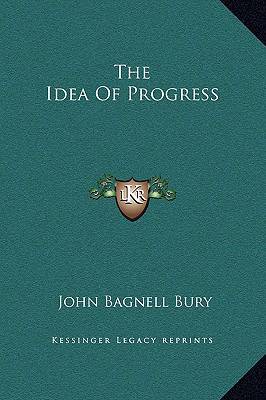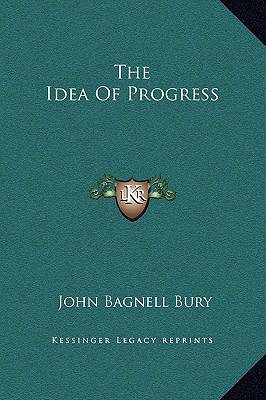
- Retrait gratuit dans votre magasin Club
- 7.000.000 titres dans notre catalogue
- Payer en toute sécurité
- Toujours un magasin près de chez vous
- Retrait gratuit dans votre magasin Club
- 7.000.0000 titres dans notre catalogue
- Payer en toute sécurité
- Toujours un magasin près de chez vous
Description
The Idea of Progress is a book written by John Bagnell Bury, which explores the concept of progress in human history. The book is divided into two parts, with the first part examining the idea of progress in ancient and medieval times, and the second part exploring the idea in the modern era.Bury argues that progress is a fundamental aspect of human history, and that it has been present throughout all cultures and civilizations. He traces the development of the idea of progress from ancient Greece and Rome, through the Enlightenment and the Industrial Revolution, and up to the present day.The book also examines the various factors that have contributed to progress, such as scientific discovery, technological innovation, and social and political reform. Bury argues that progress has been driven by a combination of these factors, and that it has led to significant improvements in human life, such as increased life expectancy, improved health, and greater economic prosperity.However, Bury also acknowledges that progress has not been without its drawbacks, and he explores the negative consequences of progress, such as environmental degradation, social inequality, and the potential for technological advances to be used for destructive purposes.Overall, The Idea of Progress is a comprehensive exploration of one of the most fundamental concepts in human history, and it provides a thought-provoking analysis of the benefits and drawbacks of progress.At the same time Pascal recognised that we are indebted to the ancients for our very superiority to them in the extent of our knowledge. ""They reached a certain point, and the slightest effort enables us to mount higher; so that we find ourselves on a loftier plane with less trouble and less glory."" The attitude of Descartes was very different. Aspiring to begin ab integro and reform the foundations of knowledge, he ignored or made little of what had been achieved in the past.This scarce antiquarian book is a facsimile reprint of the old original and may contain some imperfections such as library marks and notations. Because we believe this work is culturally important, we have made it available as part of our commitment for protecting, preserving, and promoting the world's literature in affordable, high quality, modern editions, that are true to their original work.
Spécifications
Parties prenantes
- Auteur(s) :
- Editeur:
Contenu
- Nombre de pages :
- 234
- Langue:
- Anglais
Caractéristiques
- EAN:
- 9781169297425
- Date de parution :
- 10-09-10
- Format:
- Livre relié
- Format numérique:
- Genaaid
- Dimensions :
- 178 mm x 254 mm
- Poids :
- 625 g

Les avis
Nous publions uniquement les avis qui respectent les conditions requises. Consultez nos conditions pour les avis.






